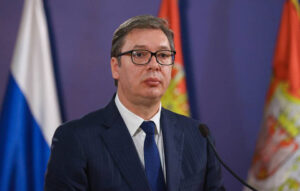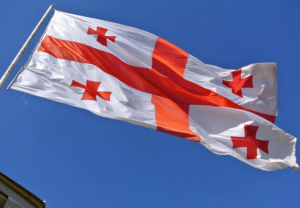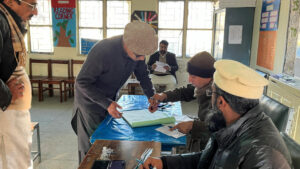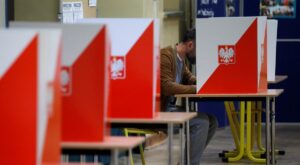
According to Serbian Economist, Serbian President Aleksandar Vucic said that early parliamentary elections will be held in the country in 2026.
Speaking to supporters outside the National Assembly building, Vučić said that the authorities had agreed to the protesters’ main demand:
“We have accepted their main demand, and soon, next year, we will go to the polls. Only they will not be so happy when the votes are counted. We are going to defeat them everywhere in Serbia,“ he said.
The Tanjug news agency specifies that the president separately emphasized the need to comply with democratic rules and that ”the country should be ruled by those who receive the majority, not those who think it is better to set fire to buildings.”
No specific date has been set for early parliamentary elections yet. Vučić spoke of voting “next year” and made it clear that he expects a campaign in which the ruling Serbian Progressive Party (SNS) will try to confirm its dominance at the national level.
The last parliamentary elections in Serbia were held early in December 2023; at that time, Vučić’s party and its allies retained their majority in the Skupština amid protests by the opposition, which challenged the fairness of the vote.

Chairman of the Central Election Commission of Georgia Giorgi Kalandarishvili announced the results of Saturday’s parliamentary elections.
According to him, data from 3100 polling stations out of the total number of 3111 has been processed.
He said that the ruling Georgian Dream party won the elections with 54.08% support of the voters. It was followed by four parties that broke the 5% (passing threshold): “Coalition for Change” – 10.92%, ‘United National Movement’ – 10.12%, ‘Strong Georgia’ – 8.72% and ‘For Georgia’ – 7.76%.

France will hold the first round of early elections to the National Assembly, the lower house of parliament, on Sunday.
Polling stations mostly opened at 08:00 local time (09:00 Kiev time), the end of voting at most polling stations will take place by 18:00 (19:00 Kiev time), however, in some cities and departments the schedule of polling stations may differ. In particular, in major cities, including Paris, the French will be able to cast their vote until 20:00 (21:00 Kiev time).
The first results are expected to appear after 20:00 local time (21:00 Kiev time).
Voters will have to elect 577 parliamentarians, with 289 seats needed for an absolute majority.
According to the procedure, if a candidate wins a majority of votes in the first round with a turnout of more than 25%, he or she immediately gets a seat in parliament. If no candidate is elected, there is a second round.
As a rule, one round is not enough to determine the winner of the French parliamentary elections. This time the second round is scheduled for July 7.
In the elections there is a bloc of left-wing parties called “New Popular Front”, the coalition “Together”, including, in particular, the party “Renaissance”, founded by Macron, as well as the right-wing party “Republicans”. The main intrigue of the election, however, is how many seats the far-right Rassemblement Nationale party, affiliated with Marine Le Pen, which won France’s European Parliament elections earlier this month, will be able to win.
According to the latest pre-election polls, Rassemblement Nationale can count on nearly 40 percent of the vote in the first round, which could give the party between 250 and 280 seats in the lower house, while 289 seats are needed for an absolute majority. A coalition of the Left is likely to come in second place, while the Together coalition is likely to come in third.
Early elections in France are being held after French President Macron’s Renaissance party lost to the far-right Rassemblement Nationale in the June 9 European Parliament elections. On the same day, the French leader announced the dissolution of the lower house of parliament, the National Assembly, and called early parliamentary elections.
Earlier the analytical center Experts Club presented an analytical material about the most important elections in the countries of the world in 2024, more detailed video analysis is available here – https://youtu.be/73DB0GbJy4M?si=eGb95W02MgF6KzXU.
Subscribe to Experts Club YouTube channel here – https://www.youtube.com/@ExpertsClub

The results of last Thursday’s parliamentary elections in Pakistan have been summarized, with independent candidates, mostly affiliated with the party of former Prime Minister Imran Khan, who is serving a prison term, taking first place, Al Jazeera reports.
According to the Central Election Commission, out of 266 seats in the lower house of parliament (National Assembly) of Pakistan, 101 seats were won by independent candidates, 96 of them supported by the right-wing centrist party, the Justice Movement, founded by former Prime Minister Khan. However, after a court found Khan guilty on a number of charges, the Supreme Court and the CEC ruled that Khan’s supporters could only run as independent candidates and were prohibited from using party symbols.
The second place went to the party of former Prime Minister Nawaz Sharif, the Pakistan Muslim League, with 75 seats. The third place went to Bilawal Bhutto Zardari’s center-left Pakistan People’s Party with 54 seats.
It took more than 60 hours to count the votes. None of the parties achieved the required majority of 169 seats to form a government on their own.
On Friday, Sharif said that despite his failure in the parliamentary elections, he would try to form a coalition government. He had previously rejected the possibility of a coalition with other parties.
For 2024 – 2029, 336 seats are available in the National Assembly of Pakistan. In the 2024 elections, the number of seats was 266. Another 70 seats in the lower house of parliament are reserved for women and minority representatives. These seats are distributed among all parties.
The elections were held against the backdrop of a difficult economic situation in the country, as well as tensions in the border regions.
Earlier, the Experts Club information and analytical project included the 2024 elections in Pakistan in the list of the TOP-10 most important elections of 2024 for the whole world, see the video for more details at https://youtu.be/73DB0GbJy4M?si=pMUPbHSYKI8YrDFR

On Sunday, October 15, Poland holds elections to the Sejm, Senate, as well as a national referendum, voting began at 7.00 and will last until 21.00, reports Polskie Radio.
It is noted that citizens have been created conditions for voting in Poland, abroad and even on ships. According to the chairman of the National Election Commission Sylwester Marciniak, more than 31 thousand electoral districts have been created.
“There are 29 thousand 292 stationary constituencies, 1,701 separate constituencies, and in addition, 417 constituencies abroad have been created, however, one was eliminated in Israel, and 8 constituencies for voting on ships have been created,” Marciniak emphasized
According to Polskie Radio, 29 million Polish citizens have the right to vote in elections and referendums. More than 391 thousand voting certificates have been issued, which allow voting not at the place of residence.
It is noted that Poles will elect 460 deputies and 100 senators. And the referendum should answer four questions: whether they support the removal of the fence on the border with Belarus, support for the privatization of state-owned enterprises, raising the retirement age to 60 years for women and 65 years for men, as well as whether they agree to accept thousands of illegal migrants from the Middle East and Africa, in accordance with the mechanism of forced relocation, which operates in the EU.
As DW reports, according to the latest opinion polls, the ruling national-conservative Law and Justice (PiS) party of Deputy Prime Minister Jaroslaw Kaczynski with 34% of the vote is only slightly ahead of the opposition liberal-conservative Civic Platform (CP) party of former Polish Prime Minister and former President of the European Council Donald Tusk, for which 32% of voters are ready to vote.
It is emphasized that in case of victory each of the contenders will have to look for partners to create a government coalition.

Citizens of Brazil on Sunday will vote in a general election, which will determine the new president and vice president of the country, the composition of the National Congress (parliament), governors, lieutenant governors and deputies of state legislatures.
The main attention is riveted to the election of the head of state. Seven candidates are vying for the post, but two have the most support among the Brazilian population: incumbent President Jair Bolsonaro and former President Luiz Inacio Lula da Silva. Bolsonaro is a right-wing politician, while Lula da Silva represents the left.
According to the latest Datafolha poll before the vote, Lula da Silva could get 50% of the vote in the first round, and Bolsonaro – 36%. The remaining votes were distributed among five more candidates. Observers note that it cannot be ruled out that Lula da Silva, despite a large lead over Bolsonaro, will not be able to achieve election in the first round.
To win in the first round, a candidate needs to get more than 50% of the votes. If this fails, then a second round is held between the two strongest candidates.
Lula da Silva is 76 years old, he was previously going to take part in the 2018 elections, but he could not do it, as he was convicted and ended up in prison. Despite this, the Brazilians continued to have sympathy for him, and, judging by the polls, even behind bars, Lula da Silva remained the most popular politician in the country.
As a result, the Brazilian Workers’ Party nominated Fernando Addada as a presidential candidate in his place. This politician lost to the current President Bolsonaro.
Lula da Silva ruled Brazil from 2003 to 2010, and in 2017 he was sentenced to nine and a half years in prison for money laundering and corruption. Later, the term was increased to 12 years. He himself never admitted his guilt, his lawyers eventually managed to appeal the verdict. In 2021, the country’s Supreme Court annulled his anti-corruption conviction. Now he can run for reelection again.
Brazilians remember his period in office due to his socially oriented economic policy, and the current election program is also built with a leftist bias: he focuses on the poorest segments of the Brazilian population, promises to expand social programs and increase funding for infrastructure projects, intends to fight for the conservation of forests in the Amazon in in contrast to Bolsonaro, who was criticized for heavy deforestation during his term.
Bolsonaro, 67, is a former military and congressman who was known in Brazil for his controversial remarks about ethnic and sexual minorities and women, as well as for his far-right conservative views, even before he assumed the presidency, and has repeatedly expressed nostalgia for military dictatorship in Brazil.
Bolsonaro has been criticized by many Brazilians for what they see as downplaying the severity of the COVID-19 pandemic. Polls showed that the citizens of the country believe that there is corruption in the government under Bolsonaro and that he is incapable of governing the country. Polls conducted throughout August and September indicated that Bolsonaro’s approval rate had fallen to record lows, with between half and two-thirds of respondents disapproving of his work at various times.
During the election campaign, Bolsonaro continued to voice conservative views, promising to defend the traditional values of Christians, criticize the country’s electronic voting system and even members of the election commission that they are “working against him.” Brazilians will remember his campaign for scandals: Bolsonaro made harsh, radical statements, which were then actively distributed on social networks, once he got into a fight with a blogger who criticized him at a public event.
In addition, Brazilians on Sunday will elect 27 out of 81 senators, 513 members of the Chamber of Deputies, 27 governors and members of state legislatures.